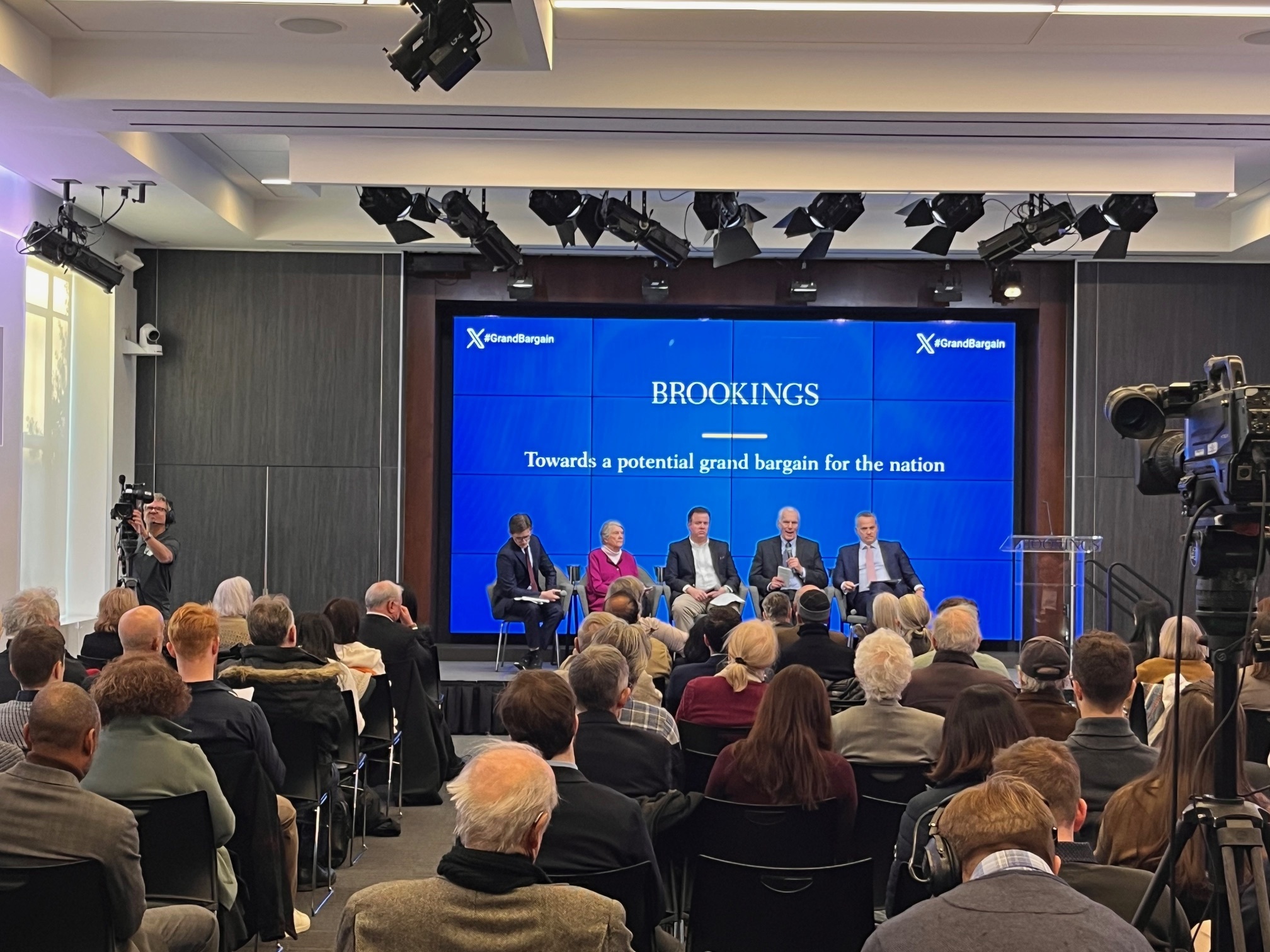Content
Blog
The Cost of Gridlock: What America Stands to Lose
Gridlock in Washington often feels like political business as usual. But beyond the headlines and finger-pointing lies a sobering reality: inaction has real consequences. It’s not just about legislation left on the table—it’s about opportunities lost, growing costs, and the erosion of public trust.

Gridlock in Washington often feels like political business as usual. But beyond the headlines and finger-pointing lies a sobering reality: inaction has real consequences. It’s not just about legislation left on the table—it’s about opportunities lost, growing costs, and the erosion of public trust.
When solutions stall, the issues don’t wait. The costs add up, affecting our economy, communities, and collective future.
The Economic Toll
Take infrastructure, for example. Experts have long warned that America’s aging roads, bridges, and transit systems are overdue for upgrades. Yet, despite bipartisan support for improving infrastructure, progress is slow. According to the American Society of Civil Engineers, failing to address these issues could cost the economy $10 trillion in lost GDP by 2039. It’s a stark reminder that inaction today often means higher costs tomorrow.
The same goes for healthcare reform. As debates rage on, Americans face rising medical expenses. Proposals to make care more effective and affordable often fail to gain traction. Meanwhile, families struggle to navigate a system that feels increasingly unsustainable, while our national debt grows.
The Human Impact
Beyond the dollars and cents, gridlock takes a human toll. Every delay in addressing pressing issues—like healthcare, education, and economic mobility—means families waiting for solutions they need now. Students graduate without the skills they need for the workforce. Communities hit by extreme weather face rebuilding with insufficient resources.
These aren’t abstract concerns—they’re challenges that affect everyday Americans, from rural towns to bustling cities.
Why It Matters: The Cost of Gridlock
Gridlock isn’t just frustrating—it’s costly. For decades, the inability of Congress to find common ground has delayed critical reforms and eroded public trust in our democracy. But the cost goes deeper than frustration. It touches every American in ways that are both visible and invisible, personal and societal.
When essential legislation is stuck in limbo, real-world problems don’t wait. Families face rising costs in healthcare, education, and housing because political stalemates delay solutions that could make these burdens lighter. Communities grapple with outdated infrastructure while debates over funding drag on. And the growing national debt, compounded by inaction, threatens the stability of future generations.
Yet perhaps the most damaging consequence of gridlock is its impact on our collective faith in government itself. When people see leaders unable to work together, it reinforces the belief that our system is broken beyond repair. This erosion of trust isn’t just about politics—it undermines the shared purpose and common ground that democracy depends on.
But gridlock isn’t inevitable. History shows us that when Americans unite around shared goals, even the most entrenched political systems can shift. That’s why addressing gridlock matters: not just to fix what’s broken today, but to rebuild the trust and collaboration needed to secure a thriving future.
By focusing on practical solutions to issues Americans overwhelmingly agree on—like economic opportunity, healthcare reform, and fair taxation—we can show that change is possible. It’s not about bridging every divide overnight; it’s about proving that when we tackle big challenges together, we all benefit.
Moving Forward
Gridlock isn’t inevitable. It’s a challenge we can overcome by focusing on what unites us rather than what divides us. The Grand Bargain Project is working to create a roadmap that prioritizes shared goals, offering practical solutions to break through the stalemate and build a stronger, more unified future.
Let’s work together to ensure that the cost of inaction doesn’t hold us back any longer.
Other Articles

Why Civility is Not Enough
Blog
For years, civility has been promoted as the answer to America’s deepening divisions. Leaders and pundits have called for a softening of voices, an opening of ears, and a renewed focus on finding common ground.

Building Consensus: Starting with Experts’ Insights to Help Shape Our Future
News
On December 3rd, the Brookings Institution and American Enterprise Institute (AEI) co-hosted an event to discuss a report commissioned by the Center for Collaborative Democracy.

When Public Consensus Drives Real Change: A Look at What’s Possible
Blog
In the aftermath of a divisive election, it might be easy to look at the fissures we are told exist between us and feel that our differences are insurmountable.









.png)





.jpg)
.jpg)
